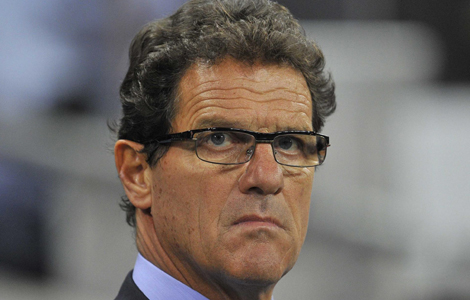Chinese firms: Good prospects in Egypt
Updated: 2012-02-13 10:10
By Li Lianxing (China Daily)
|
|||||||||
Editor's Note: China Daily reporter Li Lianxing looks at how Chinese businesses in Egypt view their future
SUEZ, Egypt - Chinese companies in Egypt are confident in the economy and investment future in Egypt, saying its political reshuffle might offer a chance for foreign investment.
"The political change of the Egyptian government is a domestic issue that will hardly affect foreign investment," said Han Ruihua, executive manager of Egypt-TEDA Suez Industrial Park.
"Whoever takes the leading role in the coming government, and also ordinary Egyptians, will realize the importance of reviving its economy," Han said.
"Egypt has a relatively lower cost of energies such as oil, gas and electricity; its high unemployment rate needs more job opportunities; it is located in the pivotal region among Africa, Europe and Asia, its market is enormous; and fundamental industries in this country are in dire need," he said.
Although the situation in Egypt, with a new government on the way, is not "stable", the Industrial Park, officially established in 2009, will welcome a new contract from China worth $223 million. This is just the first part of a three-phase project, according to an official with the Jushi Group Co Ltd, a manufacturer and promoter of China's fiberglass industry.
The official said the three-phase investment is worth $700 million and is expected to be ready in the next few years.
As economic development modes in the two countries are highly complementary, labor-intensity and energy-hungry industries that are finding it increasingly difficult to operate in China could take Egypt as an ideal choice, according to Han.
Han said the development presents both challenges and opportunities.
"As the new government is about to declare favorable policies to boost its economy, Chinese investors should join the plan as soon as possible," Han said.
"The first 18 days after Jan 25, 2011, were intense, and we were even afraid of going out and had to rely on the food supplied by local staff," he said. "But actually across the whole year, companies in our park in a general sense all increased their profits and we rarely heard that any foreign investment was opposed by locals."
"Although the turbulence in the past year brought low efficiency and some personnel change in the government, Egyptian officials generally have a quite positive attitude toward our investment and development here," he added.
Located on the west bank of the Suez Canal, the Suez Industrial Park is one of the five industrial parks jointly set up by China and African countries based on agreements reached at the Forum on China-Africa Cooperation in 2006. The park now has 40 companies and factories, including 26 investment entities and 16 service companies.
The industrial park, which is worth $300 million, covers a wide range of industries including machinery, motorcycles, textiles, energy-saving bulbs and women's sanitary products.
Some companies were affected by the turbulence in 2011. For example, sales at a motorcycle factory in the park waned last year as it required immediate payment after purchase to ensure financial security amid the social turmoil. The policy ended up scaring away many clients.
Muyang is a machinery manufacturer from eastern China's Jiangsu province that is considering joining the park. It's still weighing the current security situation in Egypt after a number of robbery and theft cases were reported in other industrial parks last year.
Sino Tharwa Drilling Company, which works in Egypt's pillar oil industry, had its operation disrupted on a number of occasions by staff calling for wage increases.
"Actually, the majority of employees soon realized that the pay was already above the average level, and the complaints didn't last long," said Li Zhigang, the company's general manager.
Sino Tharwa Drilling Company witnessed slow but consistent development last year. "We even extended our business from land to sea when we constructed a marine drilling platform in 2011," said Li said.
Supported by the Ministry of Petroleum, the company was previously directed by the ministry, and some officials would attend the executive board meeting, which would complicate the whole process of the business.
"After the revolution, the management system of the company became more standardized, so the company is running according to market rules and the bureaucratic procedures were greatly reduced," he said.
Despite factors that may affect the development of the Egyptian economy, the changes in Egypt are a chance for new companies to join the nation's oil market and break the traditional Western monopoly, Li said.
"As we have extended our business to the sea, we are seeking to become a more comprehensive service company that is not only drilling but is involved in more technological innovation," he added.
Hot Topics
Kim Jong-il, Mengniu, train crash probe, Vaclav Havel, New Year, coast guard death, Internet security, Mekong River, Strait of Hormuz, economic work conference
Editor's Picks

|

|

|

|

|

|







